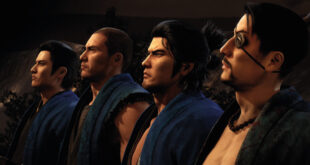Alex ‘Xpecial’ Chu is a member of professional gaming side Team Liquid – and, as such, is one of the best League of Legends players in the world.
MCV talks to him about his career playing games competitively
”Anything that I put my effort into, I want to be one of the best in.”
So says Alex Chu of the personal drive that led him to become a professional gamer.
Now known as ‘Xpecial’, Chu is renowned as one of the best support players in League of Legends – meaning his task is to boost his teammates’ stats with spells and abilities during matches.
“My competitive nature started with table tennis when I was just four and persisted into my grade school years with online games,” he explains. “League of Legends was no different for me, and I rose to the top of the ranked ladder early into Season One.”
Sticking with Team SoloMid for three years, in May of last year Chu moved across to Team Curse. Following that team’s subsequent merger with Team Liquid last month, Chu moved across to the new side.
“I played for multiple teams as a midlaner until I was offered a chance to play AD Carry [using ranged weapons to weaken enemy players] for Team SoloMid,” he explains. “I eventually swapped to support and that was where my career took off.”
“A big concern for players is the future after their competitive careers are over.”
Alex ‘Xpecial’ Chu
Like many eSports players at the top of their game, Chu is only in his early twenties. With games like League of Legends and Dota 2 requiring near-instantaneous reactions, many pro-gamers find their careers coming to an end far quicker than their counterparts in sports such as football.
Chu says that the short period of time available to players hoping to rise to the top is just one challenge.
“One of the biggest concerns for players is the future after their competitive careers are over,” he explains. “Many players postpone their education in order to pursue their eSports dreams and few ever make it to the big stage. Financial stability and avenues of exit, whether through education or jobs are great reassurances.”
It’s not only players that change over time.
“Titles in eSports fluctuate in popularity,” says Chu.
“Five years ago, the most popular game was StarCraft, but that scene has since diminished almost completely due to the growing popularity of League and Dota 2.”
This changeability can have benefits for games firms – Chu highlights Blizzard’s card-battler Hearthstone as one recent title to have successfully cracked the eSports market.
“Each popular game has an opportunity to venture into the eSports scene,” he says.
“Hearthstone is a great example of a casual card game entering the ecosystem for the first time, and I don’t see that changing in the future. If players enjoy watching it, then it will happen.”
While Chu may be a well-known figure among eSports fans, his name is likely to go unrecognised among those outside of the sector. But Chu believes this will change as pro-gaming’s influence continues to build momentum in wider circles.
“People often mistake gaming as a taboo area, instead of recognising the growing demographic of gamers that encompasses nearly everyone in this generation,” he comments.
“It’s only a matter of time until gaming and eSports become more mainstream due to their unrelenting growing popularity.”
He adds that, as competitive gaming gains more traction outside of the specialist sector, companies not formerly affiliated with eSports may be attracted to take advantage of an audience that is millions strong.
“People can’t help but notice the tremendous growth of eSports,” he explains.
“I expect more mainstream sponsors to enter the market after seeing the insane numbers that these games have.”

 MCV/DEVELOP News, events, research and jobs from the games industry
MCV/DEVELOP News, events, research and jobs from the games industry
